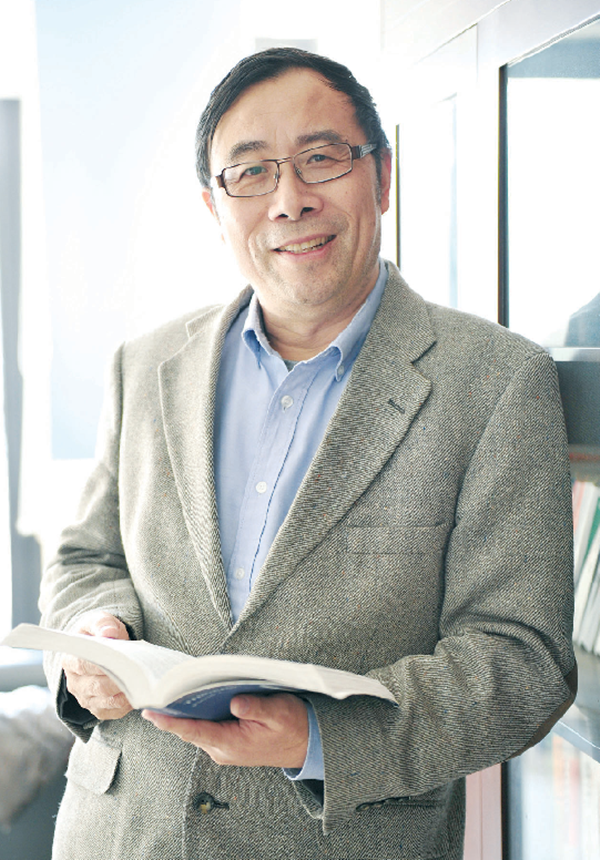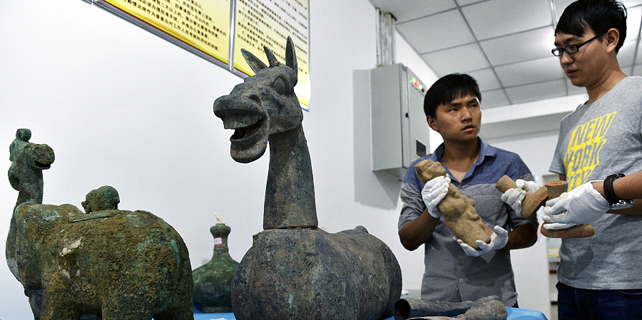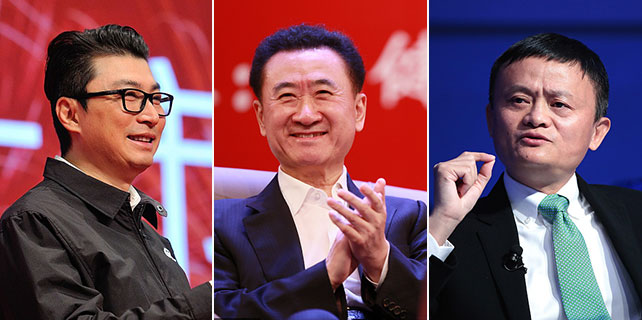Applying the science of happiness
 |
|
Peng Kaiping, chairman of the psychology department at Tsinghua University, says Chinese people talk about challenges, but seldom about happiness. PROVIDED to CHINA DAILY |
Peng Kaiping says employing positive psychology in planning and education can help people achieve happier, more meaningful lives
Despite almost 40 years of rapid advances in living standards, evidence shows that many Chinese people feel unhappy. Peng Kaiping argues that positive psychology gives insights into how individuals can improve their own happiness and how policies can boost public happiness.
Peng, who is the founding chairman of the psychology department at Tsinghua University and head of the wonderfully named Tsinghua Happiness Technology Laboratory, explains his decision to return to Beijing, after having achieved a tenured professorship at the University of California, Berkeley:
"I thought the sense of purpose and the ability to feel happy got lost in those years of economic growth. Chinese at that time didn't even want to say they were good at something. It sounds like humility, but it's not. It is just the habit of not saying anything positive — emphasizing the negative part.
"Chinese expressions are very negatively focused. They talk about challenges, obstacles and tackling problems, but seldom about happiness and inspiration. I felt very much I should work on promoting positive psychology in China."
Traditional psychological studies usually focus on mental illnesses and disturbances. But, beginning with the late 1990s work of Martin Seligman at the University of Pennsylvania, a new field has arisen that applies scientific analysis to understanding how people become happy. This is known as positive psychology.
Peng stresses that positive psychology is based on testable conclusions, not vague feelings. Psychological research shows that individuals can use technologies and training to improve their positive emotions and their feelings of living meaningfully. Especially, evidence from big data shows how policymakers can improve public happiness.
Peng did not start his career intending to be a psychologist. When he entered Peking University as a 16-year-old freshman in 1979, he was admitted to his preferred major — physics. On his arrival at the campus, he received a note instructing him to report to the new department of psychology, which had been created on the suggestion of Deng Xiaoping.
In 1978, Deng said that psychology must be important because the first visiting delegation of US scientists was headed by psychologist Richard Atkinson. Deng asked to meet with leading Chinese psychologists and was surprised to be told that there weren't any, because the field had been banned since 1952.
Peng says he was lucky to be in the first class of 20 psychology students because the university invited famous international psychologists to teach these classes.
He stayed at Peking University to teach after his graduation and then went to the University of Michigan in 1989, eventually receiving his PhD. He became a leader in the field of social and cultural psychology and a professor at Berkeley.
His early research dealt with differences in the psychology and philosophy of Americans and Chinese. He found that Americans tend to analyze the world using Aristotelian logic, which emphasizes the characteristics of an object. Chinese, on the other hand, focus on holistic relationships.
"For example, how would you categorize a cow, a chicken and grass? Americans say that the cow and the chicken fit in the same group because they are both animals. Chinese usually put the cow and grass in a group, because the cow eats the grass," he explains.
Most Americans are unsatisfied if they cannot sort things into mutually exclusive categories. But, the yin-yang tradition leads Chinese to be more psychologically accepting of complex relationships.
Peng concludes: "The Swiss developmental psychologist Jean Piaget argued that this Chinese style of reasoning was not very developed. But, this is wrong. The great German philosopher Emmanuel Kant said there are two types of rationality — integrative and analytic. Earlier psychologists had not read Kant."
Chinese philosophy may also be more consistent with the insights gained from the correlations of big data.
Most studies use surveys asking people how happy they are, but that is very unreliable. "Instead of one-time information from college students in laboratories, big data gives you lots of longitudinal data from real life," Peng argues.
Peng and his colleagues used big data techniques to search 200 million users of WeChat and Weibo for keywords indicating joy, happiness or pleasure. Combined with other variables known to tie to happiness, especially education levels and crime rates, this big data was used to identify the five happiest cities of China — Hangzhou (Zhejiang province), Chuzhou (Anhui), Yuxi (Yunnan), Yingtan (Jiangxi), and Yangzhou (Jiangsu).
What underlying factors explain the high happiness levels of these very different cities? Peng lists three factors: "First, the people feel blessed because each of these places is traditionally rich in Chinese history and culture. Second, the governments have been following "happy city" policies and often talk about optimism and positive factors. Finally, these cities are not poor, even if they are not the richest."
"Interestingly, people in Beijing, Shanghai and Guangzhou don't talk about happiness. Even the government doesn't talk about it. They talk about the problems they are going to tackle, but there is not a feeling of optimism. In the happy cities, the mayors and party secretaries express optimism. The interaction between the government and the people generates happiness."
Using big data techniques to analyze the last 200 years of writings in Chinese and 13 other languages, Peng and his colleagues found that Chinese writers were the least happy and most pessimistic. Spanish writers were the happiest. English texts were in the middle. "This is the reason I'm doing positive psychology," Peng says.
More than 170 Chinese cities have joined the Happy City campaign. Peng advises the government to boost happiness by talking about happiness and optimism. Don't fixate on negativity. Also, focus on removing misery, rather than trying to boost already happy areas.
"If you have a beautiful picture, it won't help very much to add more flowers to it," he says.
"Psychological education and positive experiences such as art or science make people happy. Make life convenient for people. It is very important to have a sense of working together, not a hierarchy," Peng advises.
"One city, Dehong in Yunnan, built an open, public space in the center of the city, instead of high rises or a city square. They show movies every night. It creates a sense of community since you can see almost everybody there," he notes.
Tsinghua is also working on integrating psychology into China's schools. Peng says that 140 school principals have signed up for a happy school program. Last October, more than 4,000 principals from around the country came to Tsinghua''s campus for a meeting on positive education — the largest gathering of educators in Chinese history.
Kevin Rudd, the former prime minister of Australia, gave the keynote address to the third international conference on positive psychology at Tsinghua in 2015. President Xi Jinping invited him to breakfast before the conference and told him that the topic was very important.
Peng notes an interesting coincidence: "President Xi introduced the concept of a ‘Chinese Dream' in 2013, one year after China's urban population passed more than half the population. Incidentally, the concept of an American Dream was proposed by businessman and historian James Truslow Adams in 1931, after the US became majority urban in 1930. Both originated when the people lost the traditional social support they had in their hometowns. The Chinese Dream has the same psychological foundation as the American Dream. Since China is a collective society, people want to make the country prosperous and happy."









